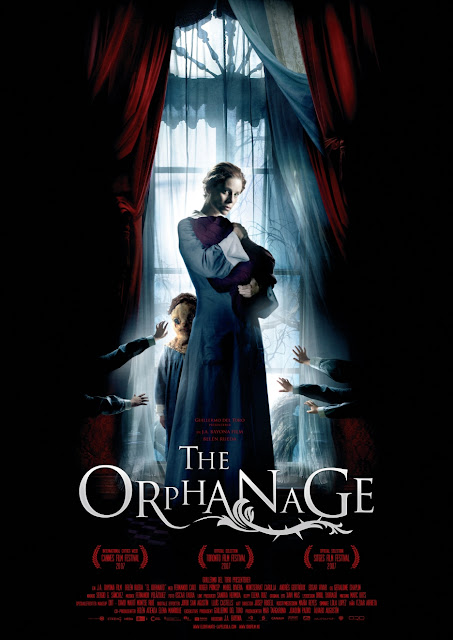A Promising Ghost Story Gets Orphaned in The Orphanage (2007)
Did you ever watch a movie that you want to like but you simply can't because it doesn't adhere to its own internal logic? If you do, then you know how I feel about The Orphanage, a 2007 Spanish horror film directed by Juan Antonio Bayona.
The Orphanage is about Laura (Belen Rueda) and her husband Carlos (Fernando Cayo) who are renovating an orphanage into a home for special needs children. Laura herself was an orphan at the very same orphanage that she and her husband are restoring and they even have an adopted child of their own, Simon (Roger Princep). A series of mysterious incidents begin to occur as Laura and Carlos prepare the building for new occupants, incidents that culminate with the disappearance of Simon on the very day of the orphanage's reopening. Laura's subsequent search for Simon leads her into the building's forgotten past and the dark secrets that it hides.
As a gothic ghost story, The Orphanage drips with unrealized potential. The cinematography is gorgeous and creepy in equal measures, the underlying themes and symbolism adds emotional weight to story's proceedings, and performances given by the principle cast make you feel for the characters and their plight. The story builds to a crushing and bittersweet finale, but that feeling rapidly fades when you begin to think about the story and realize that much of its details don't make sense. Character motivations and actions don't add up, and curious details surface that go unresolved even though they should not. There's even a hidden door that plays a major part in the story, yet it doesn't take much to realize that the details behind the door--who finds it, how it is found, and why it was hidden in the first place--weren't very well thought out by the script writer.
Overall, the viewing experience that comes from seeing The Orphanage is akin to waking up from an intense, feverish dream and then realizing that what you just experienced--regardless of its emotional power--can't stand up to the scrutiny of conscious thought. In that regard, it felt like this movie was just a few script rewrites away from being a better movie. Perhaps if one or more of the secondary characters, subplots or themes had been removed, the total narrative would be greater than the sum of its many parts.
In his review, Roger Ebert wrote that The Orphanage "is deliberately aimed at viewers with developed attention spans". I think that the exact opposite is true: The viewers who pay close attention to the film's minutia will be the ones who find its biggest faults, regardless of how deftly the film appears to utilize the narrative conventions that are common in stories about ghosts and haunted houses. Without giving too much away, it would seem that the moral of The Orphanage is that if anyone ever goes missing in or around a recently renovated building, please be sure to check the building's blueprints before consulting with a psychic. Speaking as a horror fan, this is not the kind of concluding message that any decent fright flick should leave with its audience.




Comments
Post a Comment